
by John | Feb 26, 2018 | Asset Allocation, Capital Appreciation, Economic Outlook, Geopolitical Risk Protection, Liquidity, Preservation of Purchasing Power, The Economy, The Stock Market, Wealth Protection
Over the past few weeks I’ve been writing about the faulty wiring in the United States economy that will eventually result in an Economic Conflagration.
The faulty wiring that will ultimately lead to this economic firestorm includes the fact that the real economy is weak, the economy is crushed by profligate debt and that stocks are overpriced and due for a significant crash.
One of the reasons why candidates such as Bernie Sanders and Donald Trump were popular in the last United States presidential primary and general election is because people know that the real economy is weak. They know how much debt they have and they want someone to make radical changes and do something about it.
Unfortunately government has never been particularly good at creating wealth or prosperity.
Some people might choose to rely on politicians to fix things. This website is not for those people. HowIGrowMyWealth.com is for people who want to take some common sense steps to grow and protect their wealth.
Given the faulty wiring the economy it is more important than ever to grow and protect one’s wealth. It might take a while but this faulty wiring will eventually result in a fire that will burn uncontrollably.
I realize this isn’t necessarily very cheery stuff but fear not! There is plenty of room for optimism.
I’m not a doomsday “prepper” or perma-bear and I’m sure that entrepreneurs, if free to do so, will rebuild the economy and usher in greater prosperity that will not be funneled to the politically connected.
I’m also cognizant that the stock market has gone up nearly 300% since the great recession, there hasn’t been hyperinflation in consumer prices and on the surface the crisis seems to have passed long ago. I don’t have a crystal ball and being right early sometimes looks like being wrong.
Despite the relative calm there is faulty wiring in the economy and sooner or later it will spark and ignite blaze that will, to quote Peter Schiff, “will make the financial crisis of 2008 look like a Sunday school picnic.”
The politicians, if they even realize that there are systemic problems in the economy, simply aren’t willing to endure the short term pain and inconvenience of ripping out the faulty wiring in order to fix the underlying problems. So they will continue to kick the can until the economic house burns down.
The bright side is that this will present an opportunity to rebuild the economy based on a strong foundation as opposed to what we have now, a phony economy based on debt, cheap money and consumption.
There will be winner and losers. I’m very optimistic about the future and I want to be counted amongst the winners.
So where am I putting my money?
My asset allocation falls into three main areas. Value stocks, gold and cash.
Value Stocks
Most people love buying things on sale and getting a great deal, expect when it comes to investing. When it comes to investing people want to buy expensive things and hope they go higher. Value investing takes that same common sense, buying things when they’re on sale and applies it to stocks and other asset classes.
The stock market as a whole is overvalued by a variety of metrics. But there are still good deals out there especially in non-US markets. I don’t doubt that value stocks will also go down in the event of a stock market crash but I think they will go down less and they will recover with more strength.
I could write entire articles on value stocks and I have. I’ve written about the value investing metrics I use when evaluating a stock and I also have my own value stock picks based on these metrics.
I share my value stock picks publicly. But I only share if I would buy them today or if I would hold or add to my positions with members of my free email newsletter. I will also let me email subscribers know when I buy or sell a stock first, before I publish that information to this website.
Gold
I don’t think you will get rich buying gold but it could prevent you from getting poor. Under relatively normal circumstances the demand for gold is fairly steady and the supply is fairly steady so for the most part the price of gold will rise with the level of inflation.
Gold is a way to save purchasing power. It’s a way to opt out of the financial system and wait for sanity to return.
If the dollar tanks loses it’s reserve currency status gold will still be valued.
I also think there has been significant effort to suppress the price of gold and depending on how much downward price manipulation there really has been, the price of gold could go up significantly from where it is right now.
If fiat currencies collapse that could very well induce a flight to the safe haven asset of gold that this influx of demand would be very bullish for gold.
Because of the absurd expansion in central bank balance sheets and artificially low interest rates I like gold presents a fantastic value at current prices.
What I write about gold applies to silver–another asset I think will do very well in a downturn. Silver has the added benefit of being an industrial metal that is more widely consumed.
Cash
Long term, like every other fiat currency, I think the dollar will go to zero. So why would I want to hold dollars?
First, I own a month or two of expenses in physical cash in a secure location in case there are capital controls. If there is a panic and people start withdrawing money from the banks the banks might in turn say, you can only withdraw $500 a week or something like that. Withdrawal limits could also be imposed if the US implements negative interest rates and people (very rationally) decide it is better to hold dollars in physical cash so they don’t have to pay interest to their bank for the privilege of loaning their money to the bank.
I reside in the United States and everything is priced in dollars so I need dollars to buy things. If I lived in the eurozone I would hold pounds or euros, if I lived in China I would hold Yuan. If I lived in the socialist paradise of Venezuela I would probably hold dollars (and try to get out).
Secondly, apart from physical cash I also hold dollars in a money market fund as a war chest. If stocks tank I expect there will be bargains to be had. I want to be buying stocks (if they are high quality free cashflow producing companies) when everyone is panicking and selling.
Now I fully expect the United States Federal Reserve to do what it has done in all other crises it has created–it will lower interest rates and buy assets to prop up the markets.
With interest rates already low once they cut rates to zero they will only be able to do things like Quantitative Easing and Negative rates. This is very bearish for the dollar and very bullish for gold.
But in the highly unlikely chance the US Federal Reserve does the right thing and lets the stock market collapse and lets the US government default on it’s debts this could be very bullish for the dollar. So holding some dollars is a hedge against deflation as well as a war chest to draw upon to buy undervalued stocks post crash.
What are some other possibilities?
While the bulk of my holdings are in cash, value stocks and precious metals I also dabble in some other alternative investments.
Cryptocurrencies
I’ve been a skeptic of cryptocurrencies for many years. I’ve also owned them for many years.
If there is a dollar crisis or collapse in the faith of central bankers then more people could turn to cryptocurrencies and could see it rise. Demand for cryptocurrencies could also rise for other reasons pushing the price upwards.
While I think blockchain technology is here to stay the value of any one specific cryptocurrency or token could very easily tank to nothing. Cryptocurrencies are very risky and 90% swings (both directions) happen.
You need to have an iron stomach but having between 1-5% of your liquid net work in cryptocurrencies isn’t the most outlandish idea in the world.
I would only speculate on cryptocurrencies with what you can afford to lose and I don’t considering buying cryptocurrencies investing in a technical sense since I am simply betting on the price going up.
I’ve shared with my readers my Group of Six cryptocurrencies that I’ve chosen to own and speculate on.
Options
Net I’ve actually lost money trading options. I traded options while unemployed and failed to remain dispassionate and objective. I was so focused on making money that I opened positions when the conditions were not ideal and took risks I should not have been taking.
I do believe if you are disciplined and follow the appropriate rules, you can do well trading options.
During a stock market crash volatility spikes and selling options could be a good strategy. When the VIX (a volatility index) spiked up in early February I sold a few options and those positions are doing well as volatility has dropped and the market has recovered. Markets don’t move straight up or down for very long so even if the February selloff portends drops to come, the market doesn’t drop as fast as people think in the midst of the drop.
Real Estate
Unlike all the other assets mentioned above I do not and never have owned any real estate.
Lots of people have made lots of money in real estate. I am working to learn more about this asset class and hope to own my own rental property at some point.
What I like about real estate is that it is easy to use leverage and the tax benefits are ridiculous. You can effectively pay no tax on investment property income and borrow a lot of the money you need to get started.
You of course need to know what you’re doing.
My goals for owning real estate involve owning a multi-family apartment building. The key for me is a cashflow positive property. I don’t have any interest in trying to buy and flip, although some people are very successful doing this. There are lots of ways to make money in real estate and I recommend biggerpockets.com to learn about them.
I think cashflow positive real estate will do okay in the event of a crash. If you’re in an area that has stable employment prospects those workers will always need a place to live and have the money to pay for it. Of course real estate won’t “always go up” and there are a lot of risks and headaches associated with managing property (if you don’t outsource property management).
This is part 5 of 5 of what I’ve decided to term The Economic Conflagration series where I discuss the faulty wiring pervasive the global economy:
Part 1: A Deadly Electrical Fire you Need to Know About
Part 2: The Real Economy is Weak
Part 3: Crushing Debt in the United States Limits Economic Growth
Part 4: Stocks are Overpriced and Due for a Significant Crash
Part 5: Where to Put Money when the Stock Market is Overheated

by John | Apr 9, 2017 | Capital Appreciation, Currencies, Liquidity, Trading
I’ve written about why I dislike cryptocurrencies. Everything I’ve written there is an accurate conveyance of my views.
However, today I’d like to write about why I like cryptocurrencies (and blockchain technology). I don’t see these views as contradictory, simply pragmatic.
If you aren’t already familiar with terms like blockchain, cryptocurrency or Bitcoin check out this explanation: What is Bitcoin?
Let me give you an example to illustrate why it doesn’t really matter if there are things I dislike about cryptocurrencies. If you know a lot about art this won’t work. Lets say I created the following piece of artwork. Say it’s something I painted when I was in seventh grade.
I try to sell it. How much do you think it would go for?
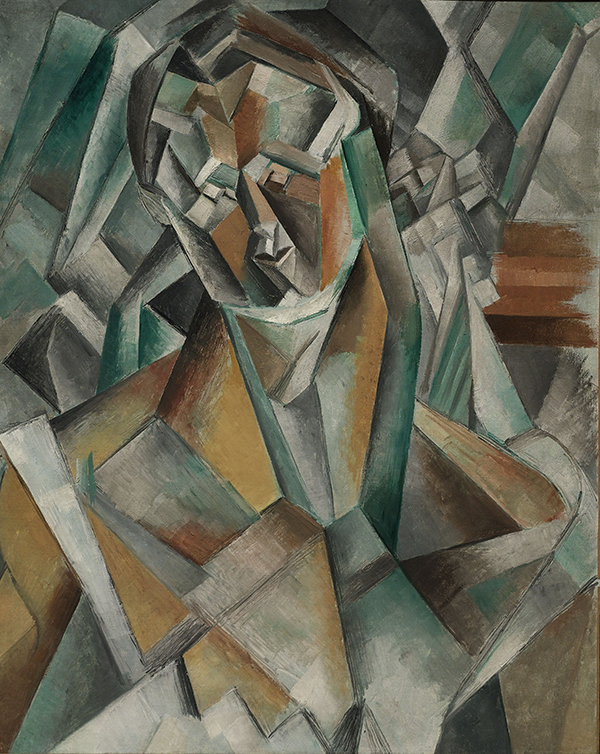
I’m guessing somewhere between nothing and a few bucks. Personally I don’t think it is very good. I don’t like it that much. The paint and canvas could be purchased for a few dollars but they might be worth more unused.
But guess what, it’s actually a Pablo Picasso painting called “Femme Assise” and someone paid $63.7 Million for it in 2016.
Source: https://www.nytimes.com/2016/06/23/arts/design/picassos-femme-assise-sells-for-63-7-million-an-auction-high-for-cubism.html
I don’t particularly care for this piece of art but people are willing to spend millions for it. So If I knew a lot about art and spotted an original Picasso at a garage sale for $20 I would buy it knowing I could sell it to someone else for much higher.
Just because I don’t particularly like much of Picasso’s artwork doesn’t mean it isn’t highly valued by other people. Just because I think there are fundamental flaws with cryptocurrencies that prevent it from being a good long term store of value doesn’t mean they won’t rise in price–at least in the short to medium term.
Whenever money is pouring into a sector or industry that is an opportunity for profit. And so I view cryptocurrencies as a speculation rather than an investment. But given all of that there are several things I like about cryptocurrencies.
1) Cryptocurrencies are great for Speculation and Trading
On 28 April 2013 the market cap of all cryptocurrencies was $1.59 billion. It’s currently nearly $28 billion.
Source: https://coinmarketcap.com/charts/
That is a tremendous inflow of money in a period of just four years. Cryptocurrencies are a rapidly growing market and it’s easy to pick a winner when everything is going up, wether it is stocks or cryptocurrencies.
The price of cryptocurrencies also tends to fluctuate dramatically and that sort of volatility is great for trading.
2) Cryptocurrencies aren’t Controlled by the Government
I’m sure some people go into government because they want to do good and make a positive change in the world.
However, on the whole government, at least in the United States, seems to mainly work to perpetuate itself. One way the US government has been able to stay in power is by going into debt and printing money.
This has resulted in a significant devaluation of US dollars.
While I think most cryptocurrencies are fairly centrally controlled the people in control of these cryptocurrencies have motivation to work for the long term good of the currency and technology since there are hundreds of other cryptocurrencies out there that people could easily adopt instead.
I think the inspiration and popularity of cryptocurrencies is at least in part due to this reckless government spending which is itself inflation and the cause of price inflation.
Many (but not all) of the cryptocurrencies including the largest, Bitcoin, are designed to be deflationary in nature.
3) Potential Widespread Adoption
A cryptocurrency or blockchain technology could be widely adopted as a replacement for one or more parts of the legacy financial system.
A Replacement for Dollars or Euros or Yen…Etc
While billions of dollars have flown into cryptocurrencies over the past several years there still isn’t widespread adoption by consumers. You don’t go into the local quick mart to pay for gasoline with DASH or Bitcoin. Amazon.com doesn’t accept Monero or Zcash as payment.
Spending dollars online and in the brick and mortal world using technology like Paypal or simply a credit card works great. The technology for spending fiat currency is mature and works fine in most use cases.
An Outside Catalyst
For some reason the average consumer in America (and perhaps people around the world too) doesn’t really about inflation, at least not directly. They care their rent goes up each year and things are getting more expensive, but they don’t think about the cause of rising prices (other than unfairly blaming “greedy business owners”).
Right now inflation is “only” 2-8% per year. Even though that represents a tremendous loss of purchasing power over time it is low enough that people aren’t really concerned about it. As long as price inflation is relatively low and stable I think people will continue to use government issued fiat currency.
But if inflation really started to take off (as I think it will some day) I anticipate the appeal and adoption of cryptocurrencies would take off as well and with it the price.
Weakest Elements of the Legacy Financial System
However international wire transfers are rather slow and somewhat expensive. And I’m not aware of an online cash-like payment system that existed before Bitcoin. So international settlements and online cash-like transactions are two areas within the legacy financial system that leave room for cryptocurrencies and blockchain technology to step in as a superior alternative.
Blockchain technology like Ripple, which has been sponsored by numerous large banks around the world, could very well replace certain elements of the international financial system.
Cryptocurrencies like Zcash and DASH, which are better than Bitcoin when it comes to speed and privacy, could very well gain large marketshare as a way to make cashlike transactions online.
4) Blockchain technology
In addition international settlements there are a variety of other applications for which Blockchain technology, one of the fundamental technologies behind cryptocurrencies, could be transformative. Areas like stock ownership, smart contracts, digital voting, and cloud storage could be revolutionized by blockchain and cryptocurrencies.
Cryptocurrencies and Blockchain Technology
I don’t see these technologies going anywhere. They could very well revolutionize many sectors in the financial world.
For all the reasons I’ve listed before, I don’t know that buying into a cryptocurrency is going to be a good long term store of value.
However, the technology itself is powerful and there is the potential for profit if one makes some daring (and correct) speculations.
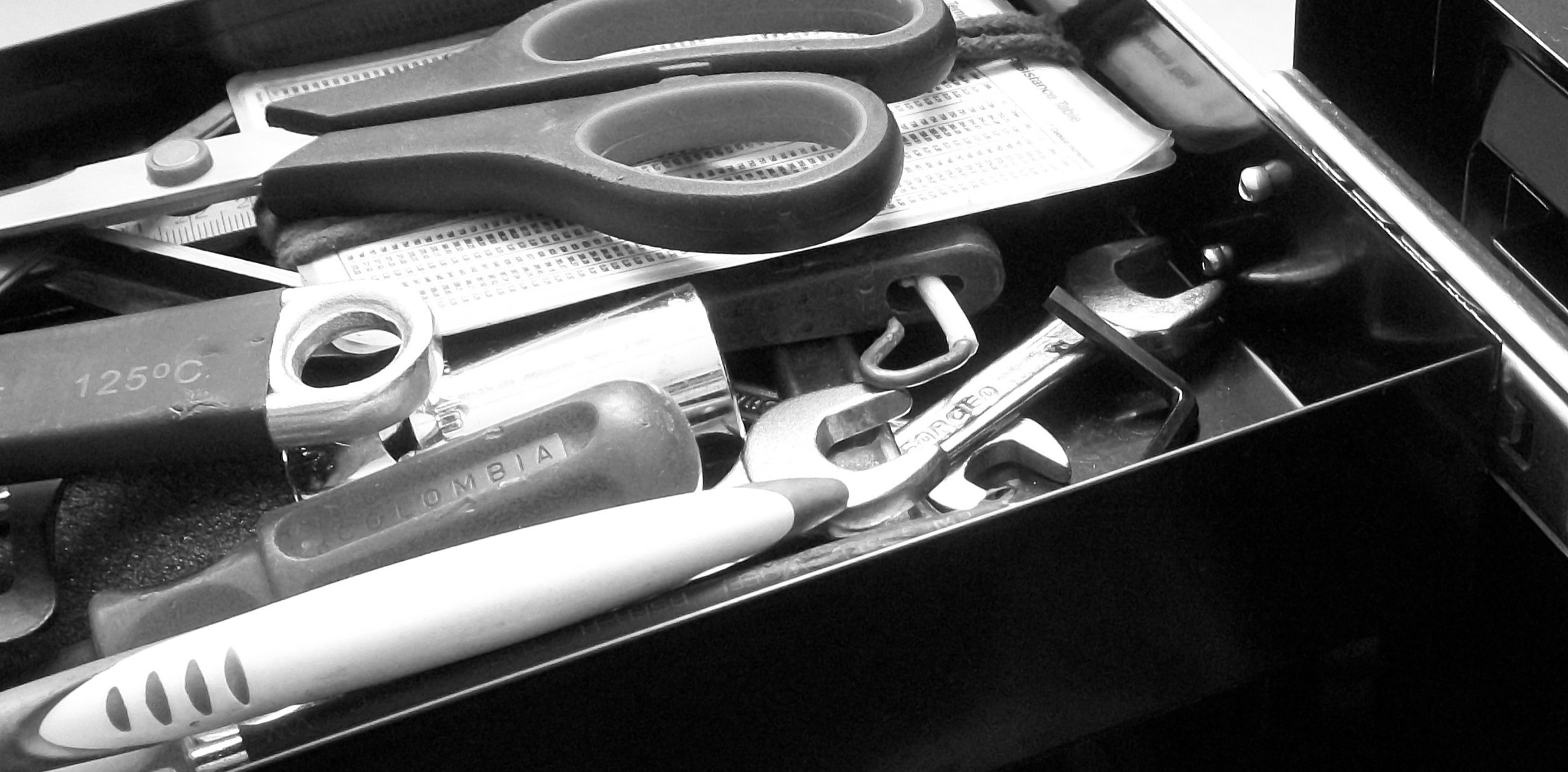
by John | Sep 16, 2016 | Geopolitical Risk Protection, Liquidity
I’ve written about negative rates (potentially) coming to the US and the importance of holding cash. I personally hold about 1 month’s worth of expenses in physical cash stored in a secure location outside of the banking system.
Why would I do this when I know that Inflation Destroys Dollars and that in the long term the value of fiat currencies goes to zero? When I’ve written articles like the above and Downfall of the US Dollar you know I’m not a fan of paper currencies.
 Two main reasons why I want some cash:
Two main reasons why I want some cash:
1) If the US adopts negative rates that means that banks will take interest out of your account. Instead of gaining a fraction of a percent of interest on your bank deposit like you get today (if you get anything) you’ll lose a fraction of a percent of your money on a regular basis.
2) Banks might impose capital controls, you’ll only be able withdraw a certain amount of money (if anything) from your bank account in the form of cash. That’s because the natural response when a bank imposed negative rates is to withdraw cash to avoid having your money taken.
Keep in mind that cash is just one tool in the toolbox. There are other important tools as well.
Tools like precious metals, cryptocurrencies (even though I’m a bit skeptical of this tech as investment pun intended), value stocks, real estate, options, the list goes on.
So would I want to be 100% in cash? No way. Bad idea. I’ve never said that or done that.
 I reside in the US so I think in terms of dollars, but there are a variety of countries where I think holding physical cash would be a good idea. Negative rates have already come to Japan and parts of Europe.
I reside in the US so I think in terms of dollars, but there are a variety of countries where I think holding physical cash would be a good idea. Negative rates have already come to Japan and parts of Europe.
Keeping a months worth of income in physical cash is something I’ve determined is a great way for me to protect my wealth, but it’s not all I’m doing.
In fact my physical cash holding is a small percentage of what I do. I withdrew some cash in $20’s (larger bills like the $50 and $100 are not right for me since some places won’t take them) over a period of time and I don’t think about it anymore (except to write some articles).
Holding cash is a defensive strategy that I do just to be able to buy gas and groceries in the event of negative interest rates, capital controls or natural disasters.
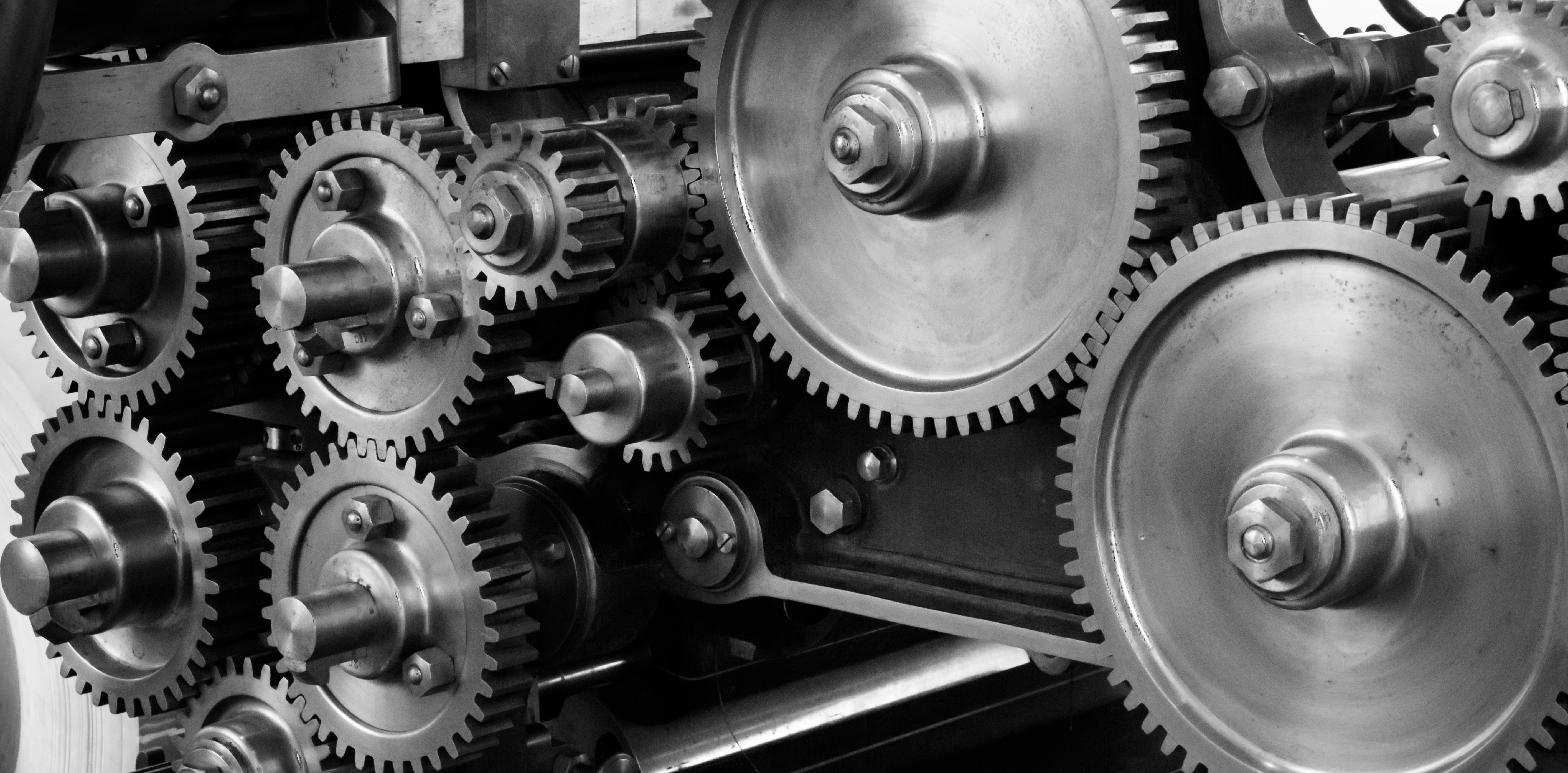
by John | Jul 31, 2016 | Geopolitical Risk Protection, Liquidity, Preservation of Purchasing Power
I remember hearing about inflation as a kid and I remember asking “Why are my savings worth less each year?” What I was really asking was “What causes inflation?”
I might have gotten an answer about rising prices or more dollars in circulation but I didn’t understand. When I got older I did my own research and now understand the mechanics and causes of inflation.
Today I Explain What Causes Inflation
But before I do I want to make sure we’re on the same page regarding what Inflation is.
Inflation and Price Inflation are often used interchangeably, but it makes more sense to separate them out because one is the cause and the other is the effect.
Let’s define some terms:
Inflation: An increase in the money supply. An increase in the money supply is a fancy way of saying there are more dollars in existence than before.
Price Inflation: Rising prices as result of an increase in the money supply.

Inflating the money supply causes rising prices
An Example of the Effects of Inflation
 Imagine everyone woke up one morning to find their bank account balances had doubled. The money supply had been inflated by a factor of 2!
Imagine everyone woke up one morning to find their bank account balances had doubled. The money supply had been inflated by a factor of 2!
Some people would choose to buy goods and services with their new-found “wealth”. But there aren’t more goods and services in the economy. Thus, consumers will bid up prices.
Basic laws of economics tell us that when demand increases and supply does not, prices rise.
Prices would then be higher as a result of the increase in the money supply in what is properly called Price Inflation.
What Causes Inflation?
Inflation is caused by creating new dollars. But who is creating these new dollars and how do they do it?
New dollars are created by banks.
The main bank responsible for inflation is the US Federal Reserve. But virtually all other banks also cause inflation via Fractional Reserve Banking.
The Federal Reserve Inflates the Money Supply
The US government spends much more than it brings in via taxes. To make up the difference the US treasury borrows money by issuing debt in the form of bonds.
This debt, these bonds, are then bought by investors, foreign governments, pension funds, and the central bank of the United States called the Federal Reserve.
If the debt was purchased with existing money this would not be inflationary. However, the US Federal Reserve conjures money out of thin air to buy US bonds. How do they conjure money?
They simply create deposits in the Federal Reserve accounts. Imagine if you could go into your bank account and type in that you now had 1 million more dollars. You’d be creating money out of thin air! That is what the Federal Reserve does.
The Fed has inflated the money supply. The Fed caused inflation by creating new dollars.
Using this this freshly minted money the Fed buys US government bonds. The US government then takes the dollars it got from the bonds it sold and spends it on tanks, government employee salaries, national parks, welfare, social security payments, you name it.
This new money that was created out of thin air by the Fed flows through the government into the economy and bids up the prices of goods and services for everyone else.
This resultant rise in prices is one of the effects of inflation.
A Second Cause of Inflation: Fractional Reserve Banking
Another cause of inflation is fraction reserve banking.
Fractional reserve banking means that banks do not have to keep all of their depositor’s funds available for withdrawal. Banks only have to keep a fraction (or portion) of their clients funds in reserve.
When you despot $100 into your checking account it doesn’t go into a vault and sit there. The bank loans that money out to other people or uses it to buy stocks, or bonds, or other investments.
Now banks aren’t allowed to loan out and invest all of their depositors money. After all, if you were to go to an ATM, you need to be able to withdraw cash, or when you write a check to pay your mortgage, the bank needs to send that money to your landlady.
Banks estimate how much money people will spend and withdraw over a given time and they keep that amount in reserve.
There are also regulations in place that dictate the amount of liquid dollars a bank must have in reserve. This is known as the reserve requirement. The reserve requirement is set by the Fed.
If the reserve requirement is 10%, that means that for every $100 in deposits, a bank can loan out $90. So, if you deposit a $100 bill into your checking account, the bank will loan out $90.
The person who received that $90 might spend it on a new pair of shoes. So they give $90 to the cobbler (shoemaker). The cobbler then deposits the $90 back into the bank, which can then be loaned out again. So the bank could make an additional $81 loan. This process repeats itself again and again and that $100 deposit, with a 10% reserve requirement, could become nearly $900 floating around the economy with only $100 in reserves in the bank.
So that little $100 bill has now become $1,000.
If you’re a more visual person you can check out this handy fractional reserve calculator.
So by not holding 100% of deposits in reserve, banks increase the money supply and cause inflation.
Do you have a better understanding of Inflation now?
The actions of the Federal Reserve and Banks cause inflation. I personally don’t like that my dollars are worth less each year because banks only hold fractional reserves and because the Fed prints money out of thin air.
This knowledge has led me to hold some money in gold. Unlike dollars banks can’t create gold by typing in numbers into a computer.
It also goes to show that if everyone were to try to withdraw their money from the bank at once the system would collapse. Don’t count on the FDIC, which is supposed to back up the banks, because it is undercapitalized. This knowledge leads me to hold some money in physical cash.
As I mentioned in a previous article the increase in money supply has caused dollars to be worth half a much since the year 2000.
Another one of the effects of inflation is the creation of bubbles (like the housing bubble of 2008) and the misallocation of resources. But that is a topic for another article.
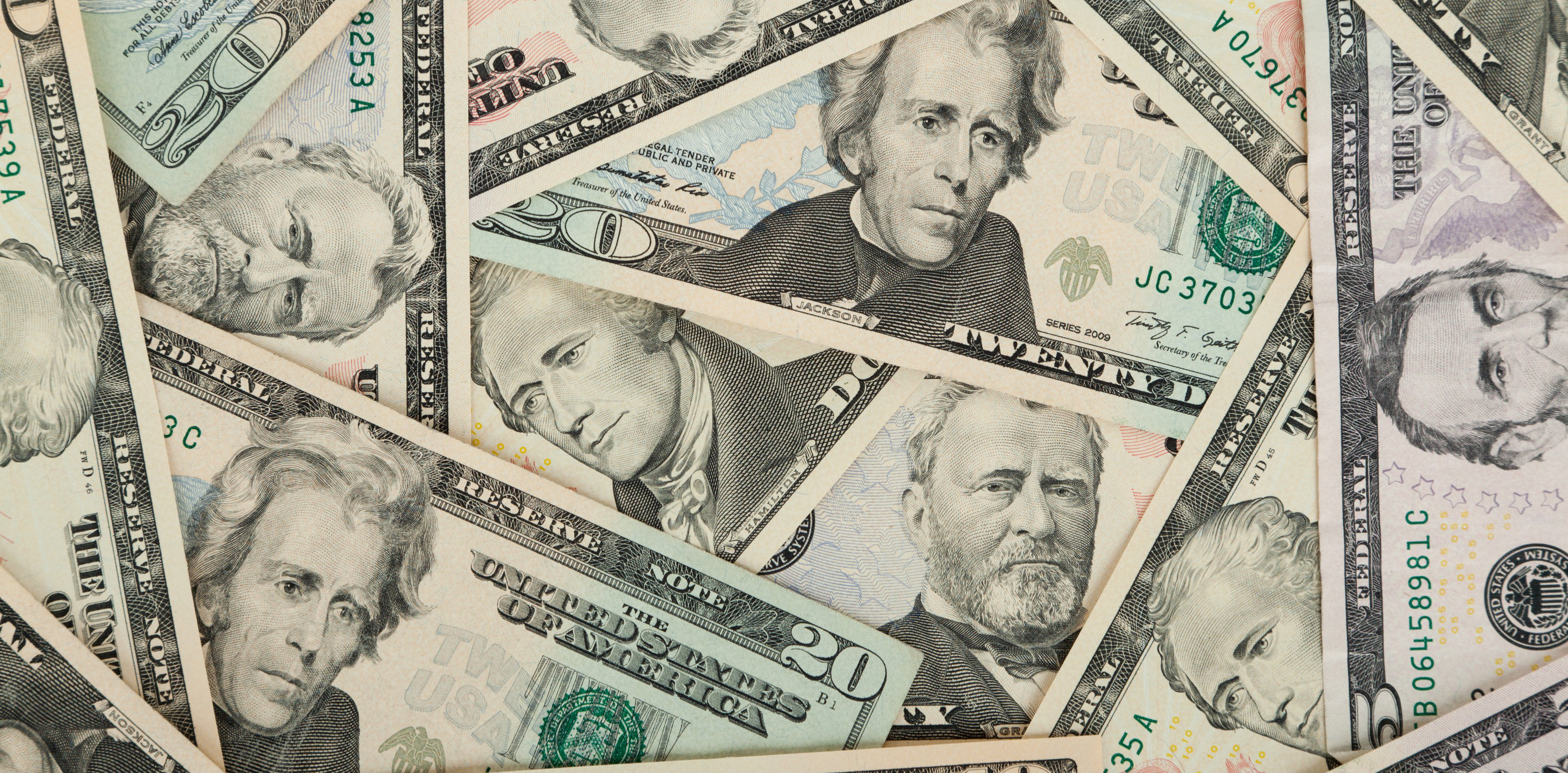
by John | Jun 9, 2016 | Liquidity
Holding physical cash makes sense in the event negative interest rates are implemented in the country in which you reside.
Physical cash only meets one of my Five Investment Goal Categories I consider when allocating capital.
Not only that, but it absolutely stinks on the other four.
The US Dollar has over a hundred year history of going down in value. The US Dollar does not appreciate or pay any interest, does not generate monthly income and is very vulnerable to geopolitical risk.
Why would I hold onto something I know will go down in value?
Even though the US Dollar fails in four out of five categories it excels at one: US Dollars are EXTREMELY LIQUID.
Cash dollars are accepted across the United States. US dollars are also the global reserve currency and accepted around the world.
I Want Cash if there are Negative Interest Rates
One of the things I believe is coming are negative interest rates. Negative interest rates would mean that a percent of the money in your bank account would be removed and given to the bank.
You’d be paying the bank to store your money.
If you think this is crazy you’re right. But it’s already being done in places like Japan and Europe.
Regardless of where I lived in the world I would want some of my money in physical local currency.
In the United States, the Federal Reserve has stated they aren’t investigating negative interest rates.
I take this denial as a strong contrarian indicator that they are in fact considering negative interest rates.
Negative Interest Rates
In a negative interest rate environment a person is better off holding cash as opposed to leaving money in a bank account.
I greatly dislike fiat currencies in general and the US dollar in particular. Despite my dislike of holding US dollars they are still needed to buy basic items like food and clothing and pay rent.
If the United States does implement negative rates, rational people would seek to withdraw their money from the bank in the form of cash and so the US government would naturally try to prevent this from happening by imposing limits on how much cash could be withdrawn per day.
I don’t want to be rushing out to the bank to make a withdrawal with everyone else when the Government announces capital controls. I want to be the guy that already has a months expenses worth of cash available.
I prefer smaller bills like the $10 and $20 because higher denominations like the $50 and $100 will likely be banned first as the war on cash intensifies.
Even if I didn’t think negative rates or capital controls would happen in the US (or the country in which I resided) I want to have extra cash available in the event of a natural disaster or when there are power disruptions and credit card readers won’t work.
Holding a months worth of expenses in cash is right for me and provides needed liquidity for my overall asset portfolio.
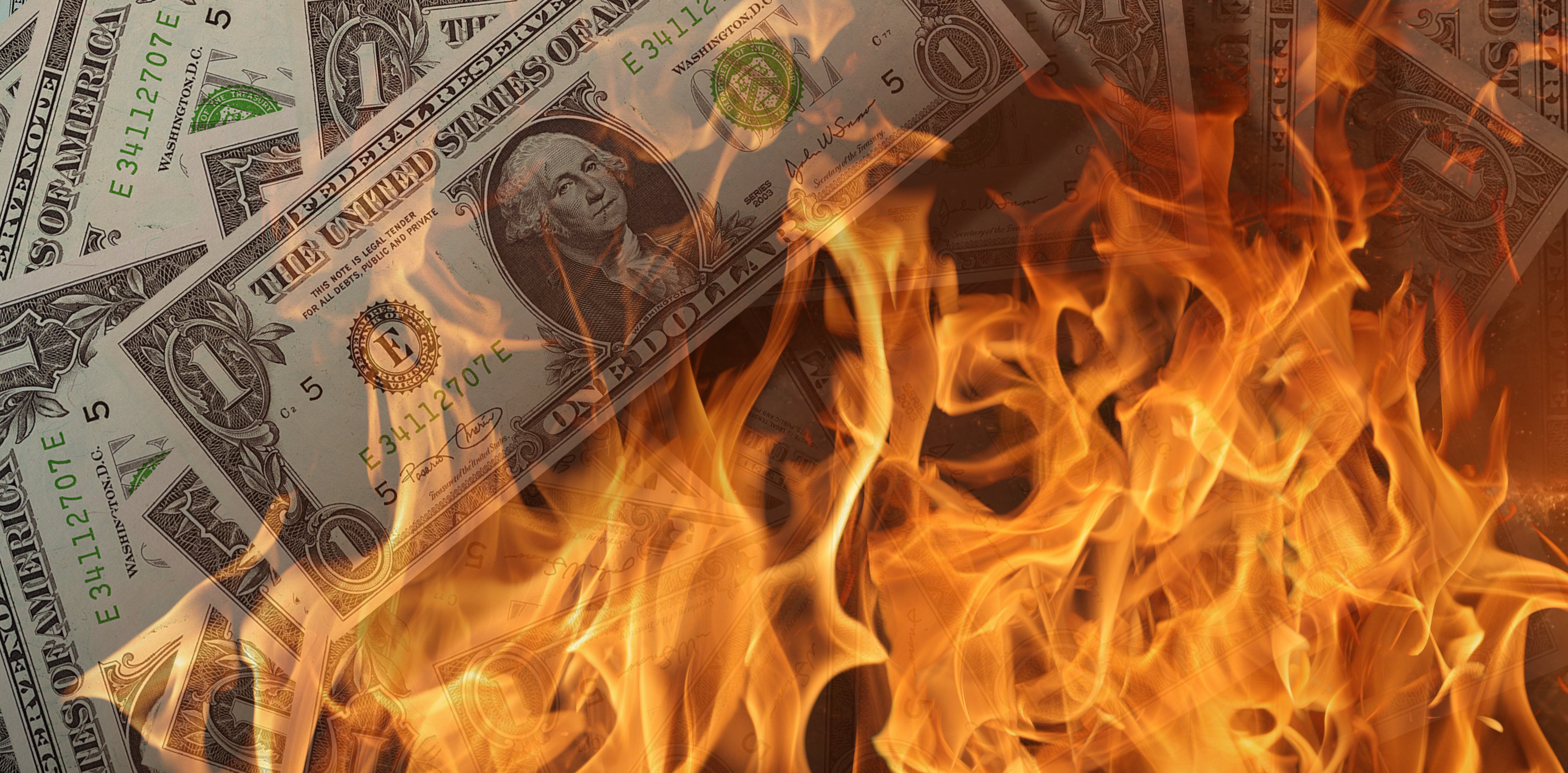
by John | May 19, 2016 | Capital Appreciation, Geopolitical Risk Protection, Liquidity, Passive Income, Preservation of Purchasing Power
Inflation has reduced the purchasing power of dollars by over 90%. Holding dollars is a sure way to lose value.
You need diverse and high quality investments to protect your purchasing power from the ravages of dollar debasement caused by inflation.
No one likes going to the store to find that a box of cereal is smaller and costs the same price or the same item now costs more.
Inflation is caused when private banks and the Federal Reserve increase the money supply. A larger money supply means there are more dollars in circulation.
This increase in dollars chasing the same amount of goods and services in the economy leads to rising prices or what’s properly called price inflation.
It is common to simply refer to rising prices as “inflation”.
I take steps to protect my Wealth from inflation
You can’t do anything about rising prices, but you can take steps that grow your wealth so that when you need to buy something you have more dollars (or Euros, or Yen) with which to pay the higher prices.
This is what is known preserving purchasing power and is a key concept.
I’m going to talk about two investments that help me meet my investment goals.
At the end of this article you’ll have an opportunity to subscribe to my Newsletter.
Newsletter subscribers receive details on the actionable ways I’ve chosen to protect myself from inflation that you can start doing today even if you only have a few dollars to invest.
These investments are not suitable for everyone and it might not be right for you, but the investment you’ll learn about immediately just by signing up below is an investment to which I’ve personally allocated several hundred dollars.
Let’s jump into two investments that help protect wealth from inflation.
Investments to Fight Price Inflation
Value Investing
8 March 2017 Note: I have further refined my value investing metrics in my article Better Metrics for Value Investing.
Believe it or not, there are certain stocks that trade below their book value.
Investopedia tells us that book value is “the total value of the company’s assets that shareholders would theoretically receive if a company were liquidated.”
So, if a stock is trading at a book value of .5, that means if you could buy all the shares then liquidate the company, you would make 50% per share. Now I’m not planning on buying all the shares of a company and liquidating it, but by purchasing quality stocks below book value there is built in downside protection.
There are other criteria as well, and stocks that meet the criteria are value stocks:
- Price to book less than 1.5
- Price to earnings less than 15
- Return on equity greater than 8% on average per year
- Dividend Yield
Value investing is how folks like Warren Buffet became billionaires.
When I allocate capital, I do so to areas that meet one or more of my Five Investment Goal Categories.
Value Stocks hit on all Five Investment Goal Categories. Value stocks serve to preserve purchasing power, provide capital appreciation, can create monthly income via dividends, foreign value stocks help hedge against geopolitical risk, and stocks tend to be among the most liquid assets.
One such stock I purchased back in October 2015 is Sberbank of Russia, ticker SBER on the London Stock Exchange. I have a offshore brokerage account (which is perfectly legal) that allows me to trade a variety of foreign stocks directly on foreign exchanges.
SBER has a price to book of 1.2, a price to earnings of 13.8, a return on equity of 9.53%% and a modest yield of .4%.
Source: MorningStar.com and TDAmeritrade.com
I purchased 100 shares of SBER at 4.772 USD, my brokerage firm charges me a $40 commission for both buy and sell. Sberbank is currently trading at $7.556 so I’m sitting on an unrealized 58.34% profit.
Not all of my trades go this way of course. I have $10,240 cost basis in my international brokerage account, and my account value is currently around $8,950. So I have both unrealized gains and losses that currently net out to unrealized losses. However, for value stocks, my time horizon is in the 2-3 year range and I’m very confident that in that time I’ll be in the black.
I’ll be devoting future videos and posts to value investing, which I feel is very important.
Precious Metals
The second investment I’ll touch on today are Precious Metals.
In my culture we have a saying, “Gold is the money of kings, silver is the money of gentlemen, barter is the money of peasants – but debt is the money of slaves.” Okay, that is actually a quote by Norm Franz from his book Money & Wealth in the New Millennium: A Prophetic Guide to the New World Economic Order but I’ve adopted it.
Gold took a serious pummeling since the latter half of 2011 through 2015. But despite that correction Gold has been up over 15% in 2016 and is up over 240% over the last 25 years. Yes, 240%.
Gold can’t be printed out of thing air and has been used as money throughout human history.
Gold also hits on four of the five criteria to varying degrees. Gold has a 5,000 year history of preserve purchasing power, it is unrivaled in this category.
If gold is undervalued, as I believe it is right now, it could provide capital appreciation (in purchasing power terms, not just dollar terms). Gold is a superb hedge against geopolitical risk, and while physical gold bullion is not liquid at this time compared to fiat cash, it is more liquid than say real estate or a business.
Despite large gains, I believe that Gold is still a great value and will go even higher and so I have chosen to invest a portion of my savings in physical gold.
I began purchasing physical gold and silver in December of 2012 and as a result I’m underwater on some of my positions. I’ve continued to make purchases throughout this time and overall I need gold to rally back to $1,400 to break even, and silver back to $24 to break even.
I would have preferred to have bought gold at the lows of $1,040, but as yet I don’t have a crystal ball that allows me to perfectly time the bottom of markets and I firmly believe that based on the fundamentals gold will make new highs in excess of $2,000.
When it comes to gold I firmly believe that it is better to be early to party than late. If the dollar goes down dramatically in value in a crisis situation there simply might not be any physical gold available for sale.
I also own multi-hundred dollars worth of gold through a relatively new and innovative way to purchase and store physical gold with very little up front investment. The benefit of this new way of owning physical gold is that it is very liquid as well.
Inflation is a destructive force, but with the right investments I’m able to position myself to continue to grow my wealth in spite of rising prices. I’ve discussed two assets I own: value stocks and precious metals that could be helpful as you make your own investment decisions.
There is exclusive information I ONLY share with subscribers of the HowIGrowMyWealth email Newsletter. Sign up using the form above!





 Two main reasons why I want some cash:
Two main reasons why I want some cash: I reside in the US so I think in terms of dollars, but there are a variety of countries where I think holding physical cash would be a good idea. Negative rates have already come to Japan and parts of Europe.
I reside in the US so I think in terms of dollars, but there are a variety of countries where I think holding physical cash would be a good idea. Negative rates have already come to Japan and parts of Europe.

 Imagine everyone woke up one morning to find their bank account balances had doubled. The money supply had been inflated by a factor of 2!
Imagine everyone woke up one morning to find their bank account balances had doubled. The money supply had been inflated by a factor of 2!

